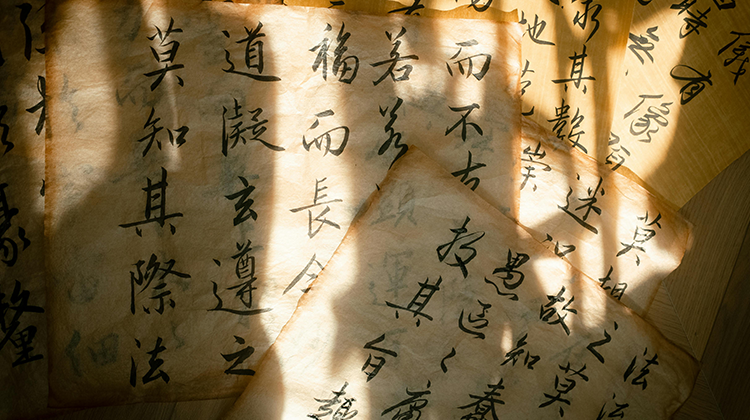As we step into the new year, many of us are thinking about our resolutions—whether it’s learning a new language, visiting new countries, or improving ourselves in other ways. However, it’s easy to say, “I’ll start tomorrow.”
When I was a child, I loved leaving important things until the last minute. My mom would quote the famous 15th-century Chinese poem 明日歌 (míng rì gē, The Song of Tomorrow) and say, 明日复明日,明日何其多 (míng rì fù míng rì, míng rì hé qí duō), which means, “Tomorrow and tomorrow again, how bountiful the tomorrows are.” Hearing it, I always felt a bit uneasy. Now, as I reflect on it, I understand how powerful and relevant the message of the poem is.
Today, I want to share this short poem with you and offer a glimpse into Chinese poetry. Whether you're a beginner or an advanced learner, I encourage you to read through it aloud and try to interpret the meanings for yourself. Also, do you notice any rhyme patterns?
The Poem: 明日歌 (The Song of Tomorrow)
Author: 钱福 (Qián Fú)
Dynasty: Ming Dynasty (1368–1644)
明日复明日,
(míng rì fù míng rì)
明日何其多。
(míng rì hé qí duō)
我生待明日,
(wǒ shēng dài míng rì)
万事成蹉跎。
(wàn shì chéng cuō tuó)
Key Vocabulary Breakdown:
-明日 (míng rì) – tomorrow
- 明 (míng) – bright, clear, tomorrow
- 日 (rì) – day, sun
-待 (dài) – to wait for
- This verb implies waiting passively for something to happen in the future.
-万事 (wàn shì) – everything, all things
- 万 (wàn) – ten thousand, many
- 事 (shì) – matter, event
-蹉跎 (cuō tuó) – to waste time, to squander opportunities
- 蹉 (cuō) – to stumble
- 跎 (tuó) – to waste
Translation of the Poem:
Tomorrow and tomorrow again,
How bountiful the tomorrows are.
I live my life waiting for tomorrow,
Everything is wasted away.
Analysis:
This poem is a simple yet profound reflection on procrastination. The repetition of 明日 (míng rì), or “tomorrow,” captures the feeling of endless postponement. The second line, 明日何其多 (míng rì hé qí duō), has a slight irony—we often think tomorrow will always be there, when in fact it is fleeting and often wasted. The second half of the poem starkly reminds us of the consequences of procrastination: time lost, opportunities missed, and goals never reached.
Understanding Chinese Poetry:
Chinese poetry, like this one, often relies on concise, vivid imagery and the use of parallelism—two lines that mirror each other in structure or meaning. It’s also common for Chinese poems to evoke deeper meanings through simple words.
Here are a few tips for reading Chinese poetry:
1.Read aloud: The tones and rhythms are an essential part of the poem. Reading aloud helps you experience the melody of the language. For example, did you notice that the last word in the second line, 多(duō), and the fourth line, 跎(tuó), rhyme? This poem is an exception, but in many four-line Chinese poems, the last word in the first, second, and last lines often rhyme.
2.Focus on the meaning of each word: In Chinese poetry, every character is carefully chosen for its meaning and sound. Take your time to understand the meaning of each word, and how it connects with the rest of the poem.
3.Pay attention to parallelism: Parallelism is a key feature in Chinese poetry. It involves repeating similar structures, ideas, or imagery across two or more lines. Generally, verbs match verbs, adjectives match adjectives, and nouns match nouns. This helps create a rhythm and balance in the poem, making it feel more harmonious.
A Lesson for the New Year:
As we step into 2025, today is the perfect day to start making progress—don’t wait for tomorrow. I hope you enjoyed exploring this Chinese poem with me.
If you're learning Chinese, I encourage you to memorize this short poem, as lines like "明日复明日 (míng rì fù míng rì)" have become common expressions used to warn against procrastination. But beyond that, I suggest you dive deeper into Chinese poetry and explore other great poets like 李白 (Lǐ Bái) and 杜甫 (Dù Fǔ). It’s a beautiful way to connect with the language, the culture, and the wisdom passed down through generations. You can check out my profile page for lessons on Chinese poetry.
Happy New Year and all the best with your goals! What will you start today? Share your thoughts and resolutions with me in the comments below!







